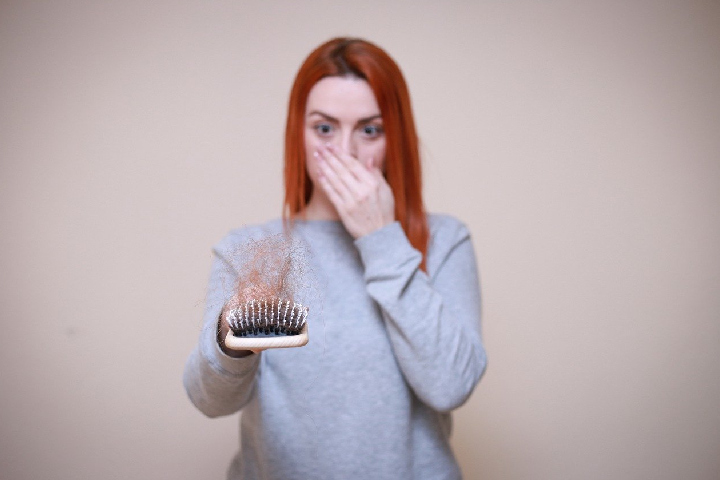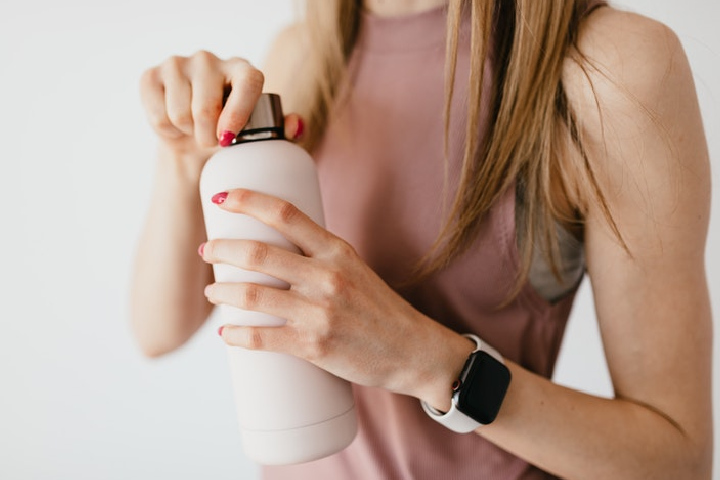Hair Falls: The stress and anxiety of being at home all day may be taking its toll on your hair as well. The good news is that there are keys to protecting your hair.
We associate hair loss more with autumn, but in spring, it is also a frequent problem. The change of season is a renewal process, and, in a few months, the lost volume is usually recovered.
But it is convenient to distinguish if it is a regular fall or hides some other problem to take the necessary measures and prevent it from going to more.
Table of Contents
1. Why Does It Fall More at This Time
Hair falls can fall for many reasons: stress, fatigue, hormonal factors, external aggressions, But seasonal hair loss is a normal process that usually ceases in several weeks. Of every 100 hairs that we have, there is always 12-15% in the phase of change.
In spring, as in autumn, peaks of hair renewal are observed. This occurs due to the biological cycle: in these times, there are changes in the hours of natural light that affect the circadian rhythm of our body.
Usually, the hair that falls out is replaced by new ones born, and the volume recovers without major problems after about 3 months.
2. When You Should Worry
Although the duration of the seasonal hair loss phase depends on the genetics and the circumstances of each person, trichologists (specialists in hair and scalp) consider that if more than 100-150 hairs are lost per day or the fall lasts more than 3 weeks may be due to another type of problem.

It is not about counting them, but about being attentive to the amount of hair you lose every day, noting what is left in the comb, in the shower drain, etc.
If you think it is excessive, go to the specialist. This will perform a Trichogramma; that is, it will examine the roots of a hair sample with a microscope to check if there are more hairs in the growth phase or falling.
He may also ask you for a test to rule out iron deficiency anemia, a thyroid problem, or another disease that could cause hair loss.
3. What Factors Increase the Fall
Other reasons can cause hair loss, or increase it:
Hereditary. The so-called androgenetic alopecia, more typical of men, can also occur in women with a family history, although they do not entirely lose hair in the forehead area.
The fall is quite fast, so it is advisable to go to the specialist and follow the treatment as soon as possible. Unbalanced diet A lack of iron, zinc, and B vitamins affects the hair.
Little or lousy sleep. Hair grows longer at night. Sleep disorders interrupt this process and increase the fall.
Anxiety and stress. These situations sustained for a long time, make the hair in the growth phase go directly to the fall phase.
Certain diseases. Anemia, hypothyroidism, and diabetes, among other disorders, can weaken hair, even with treatments.
Medicines. Hair loss is a side effect of some antidepressant drugs, against hypertension and cholesterol, or also after stopping oral contraceptives.
If your hair falls is abundant and you take any of these medications, ask your doctor if there is an option to change it or compensate in another way.
Menopause. During this stage, the amount and thickness of the hair are reduced because of estrogens decrease.
The hormonal change that occurs affects the hair follicles’ activity, which generates less hair, and there is more hair in the fall phase. Also, the amount of hair decreases as we age.
4. What Can You Do to Stop It?
When it comes to an average fall due to the change of season, hair usually recovers. Some products can help stop it, such as anti-hair loss shampoos and lotions and Nutricosmetics with vitamins and minerals that strengthen hair.
Of course, if the fall is steep or is prolonged, go to the doctor first, since the first thing is to find out the reason and remedy it, whether it is a nutrient deficit, an untreated disease or a stressful situation.
The specialist will advise you on the most appropriate hair treatment in your case, but in general, these are the care that you should take into account:
Anti-hair falls loss shampoo. Wash your hair with a regenerating anti-hair loss shampoo. And dry it with the gentle pressure of the towel and without rubbing the scalp excessively.

Anti-hair loss lotion or ampoules. The specific shampoo is usually not enough and should be combined with the use of these products. By not needing rinsing, the assets have more time to penetrate.
Follow the instructions of the product or the specialist, since sometimes, when the fall is very steep, they should be applied daily, but if it is moderate, some lotions are used every other day.
Be consistent with treatment. They are of little use if you use the products one day and four. Leave them insight, for example, next to the mirror or toothpaste, and it will be easier for you to remember.
You will notice that the fall slows down after 2-4 weeks of daily use of the product. Apply it before going to bed, as at night is when hair grows. The appearance of new hair is observed after 3-6 months of continuous use.
Get a massage every night.
Get a massage every night. This activates blood circulation and favors the arrival of nutrients to the hair roots. Do it with your fingertips and in circular motions, going over your entire head.
Suppose your fall is heavy or genetic. You may need maintenance treatment throughout the year, at least 3 times a week.
Reinforcement. You can also combine the topical treatment with an oral nutritional supplement that provides vitamins, minerals, amino acids.
Does cutting your ends help? This will not prevent hair that has to fall from falling out anyway. The nose is shed from the root, so the length does not influence the fall.
The only thing that helps a good cut is that the hair looks less fragile. And being shorter, the hairs that fall are less visible, so it seems that they do not fall as many.
5. Allied Foods for Healthy Hair
Regardless of the treatment, you perform, following a healthy and balanced diet is essential to prevent hair loss, since nutritional deficiencies and restrictive diets can favor it. These are the vital nutrients for the health of your hair:

Proteins provide the essential amino acids necessary to stimulate hair and nail growth. Meats (better white), fish, eggs, and dairy are an excellent source.
Vitamin A. It is vital for the hair follicle to be lubricated and to prevent hair loss. It’s in orange vegetables and spinach and chard.
Vitamins B. All of this group is vital for healthy hair. Fish, whole grains, legumes, nuts, and brewer’s yeast provide them.
Minerals Iron (meats, legumes) is essential for healthy hair, and selenium (Brazil nuts) prevents alopecia. Zinc (shellfish) helps to synthesize keratin, a protein that is part of hair and nails.
Biotin. Also called vitamin H, it is found in soybeans, egg yolks, peanuts.

